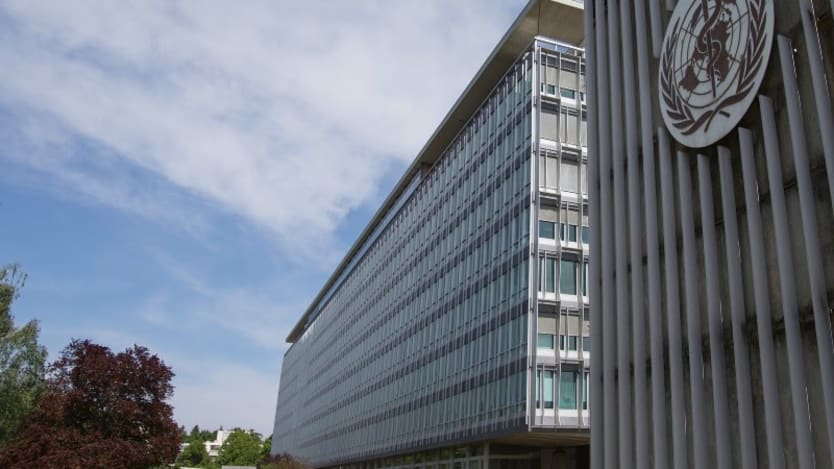Trump's WHO freeze, World Bank Spring Meetings, and UK funding woes: This week in development

Trump freezes funding for the World Health Organization, U.K. NGOs raise alarms, and the World Bank Spring Meetings test shareholder support for COVID-19 financing. This week in development:
President Trump’s decision to halt funding to the World Health Organization in the middle of a pandemic has drawn fierce criticism from global health advocates, many of whom charge that the administration is attempting to shift the blame for its own failure to act quickly to stop the spread of COVID-19. In a press conference Tuesday, Trump announced he is freezing U.S. funding to WHO “while a review is conducted to assess the World Health Organization’s role in severely mismanaging and covering up the spread of the coronavirus.” The U.S. is the largest donor to WHO, providing about $893 million in assessed and voluntary contributions for the current two-year budget period. While many health experts readily admit WHO is an imperfect institution, they also point out that it is weakened by a relatively small budget and a lack of any significant authority over the member countries that fund it. As the COVID-19 pandemic expands into low- and middle-income countries, health advocates warn that hobbling WHO could pose a serious threat to international response efforts. “Halting funding for the World Health Organization during a world health crisis is as dangerous as it sounds. Their work is slowing the spread of COVID-19 and if that work is stopped no other organization can replace them,” Bill Gates wrote on Twitter. U.S. lawmakers are now preparing to challenge the funding freeze, though it remains unclear exactly how they might do so. Some believe Trump’s move might violate U.S. law, which grants Congress power over the budget, but the funding battle might have to wait for a future spending bill.
The Trump administration is also reportedly undercutting its own international response efforts, with officials at the U.S. Agency for International Development complaining of unclear guidance and delayed decision-making as they attempt to increase pandemic preparedness and response efforts around the world. USAID has been caught up in the global scramble for personal protective equipment. Last week, the agency shipped 78 pallets of PPE from an international relief warehouse in the United Arab Emirates to the U.S. state of Oregon — the first time since Hurricane Katrina in 2005 that USAID’s overseas supplies have been deployed for a domestic response.
U.K. NGOs are raising alarms about the relatively small amount of funding set aside for them by the U.K. Department for International Development. DFID announced over the weekend that it will contribute £200 million ($250 million) to fight COVID-19 in low-income countries, but only £20 million of this will be directed toward U.K. NGOs, while £130 million will flow to the United Nations and £50 million to the International Red Cross and Red Crescent Movement. Some aid leaders speculated that the disparity was due to a recognition of the travel and access restrictions that might hinder NGO operations, leaving organizations with large national networks better positioned to respond. “This is primarily going to be a national and local response rather than an international one,” said Alexander Matheou, executive director of international at the British Red Cross. Still, NGO representatives said the amount allocated would be more appropriate for a humanitarian response effort in a single country, as opposed to the 15 countries that the tranche of funding is meant to support. They also cautioned about the time required to channel funding through multilateral institutions.
The World Bank and International Monetary Fund’s Spring Meetings are underway — but for the first time, they are taking place online instead of in Washington. The slate of events, which usually includes dozens of plenaries, civil society discussions, and side events, has been dramatically scaled down, and the official gathering of finance ministers on Friday will take place virtually rather than at the bank’s headquarters. While the schedule might appear lighter, the stakes for these meetings are as high as ever. The World Bank and other multilateral development banks are in the process of mounting a massive response and recovery effort as the COVID-19 pandemic spreads and the economic fallout of a world in lockdown ripples around the world. Just how ambitious the World Bank and its peer institutions can be depends on the assurances they receive from their shareholders, experts tell Devex — and the message from Friday’s Development Committee meeting will be a critical signal. On Wednesday, the Group of 20 major economies agreed on a debt relief plan for low-income countries, which the World Bank and IMF have backed. “This is a powerful, fast-acting initiative that will bring real benefits to the poor,” said World Bank President David Malpass.
Search for articles
Most Read
- 1
- 2
- 3
- 4
- 5








